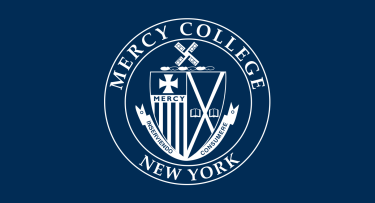Mercy’s Undergraduate Research Conference Builds Confidence, Discernment and Community for Students

The seventh annual Westchester Undergraduate Research Conference was held in the Mercy Hall Rotunda on April 13. Co-sponsored by Mercy College and Manhattanville College, with support from the Ronald E. McNair Program and the Title III STEM and Articulation Program, the event celebrated the community of scholars at Mercy and surrounding schools.
Among the 78 students participating from eight local colleges were majors in science, education and liberal arts. The program included two poster sessions and a session of oral presentations that were followed by questions from the audience.
Dr. Kimberly Rapoza, Ph.D., associate professor of psychology and the event coordinator, called the research event “a high impact practice for students conducting original, scholarly research. That’s a profound learning experience for anyone.” She pointed out that, while most participants tend to be majors in the natural and behavioral sciences, the forum is open to all.
“Some participants are math majors, business majors, and occasionally history and English majors,” she said. In a supportive environment that exposes participants to feedback from the larger research community, students benefit from interacting with experts who can help them improve critical thinking and research skills. “It sends a message that research is important and undergraduates are capable of producing important and impactful work,” said Rapoza.
Student projects represented a wide range of interests, with projects that studied sunflowers and blueberry bushes; chick embryos and livestock; environmental pathogens and heavy metal pollution; sleep deprivation and rising sea levels; and the dangers of pathogens found on snacks, hand dryers, and the railings at Grand Central Station.
The full-day conference included keynotes from Mercy provost Jose Herrera, Ph.D., who spoke about his own experiences as an undergraduate researcher, and Vincent Racaniello, Ph.D., Higgins Professor of Microbiology and Immunology at Columbia University and co-author of Principles of Virology, a textbook used widely at medical schools and universities.
Since 2012, Mercy has participated in the annual research event, partnering and alternating hosting duties with Manhattanville College. The conference provide students with opportunities to hone their presentation skills, network with other students and faculty, and hear talks from speakers who are leaders in their fields.
But Rapoza pointed out additional benefits that last long after the conference has ended: “Nowadays there’s so much controversy about which facts about our world are real and which are fake. The conference gives students a chance to investigate a topic from idea to presentation. Even if they’re not planning on a scientific career, the process helps them become educated consumers of research, and to apply that logic in many areas of their lives. They also learn to deal with unexpected results. Sometimes you have to go back and start again, or try another variation. The forum teaches them how to find something positive out of failure, yet in a supportive atmosphere. Everyone can benefit from that kind of experience.”
